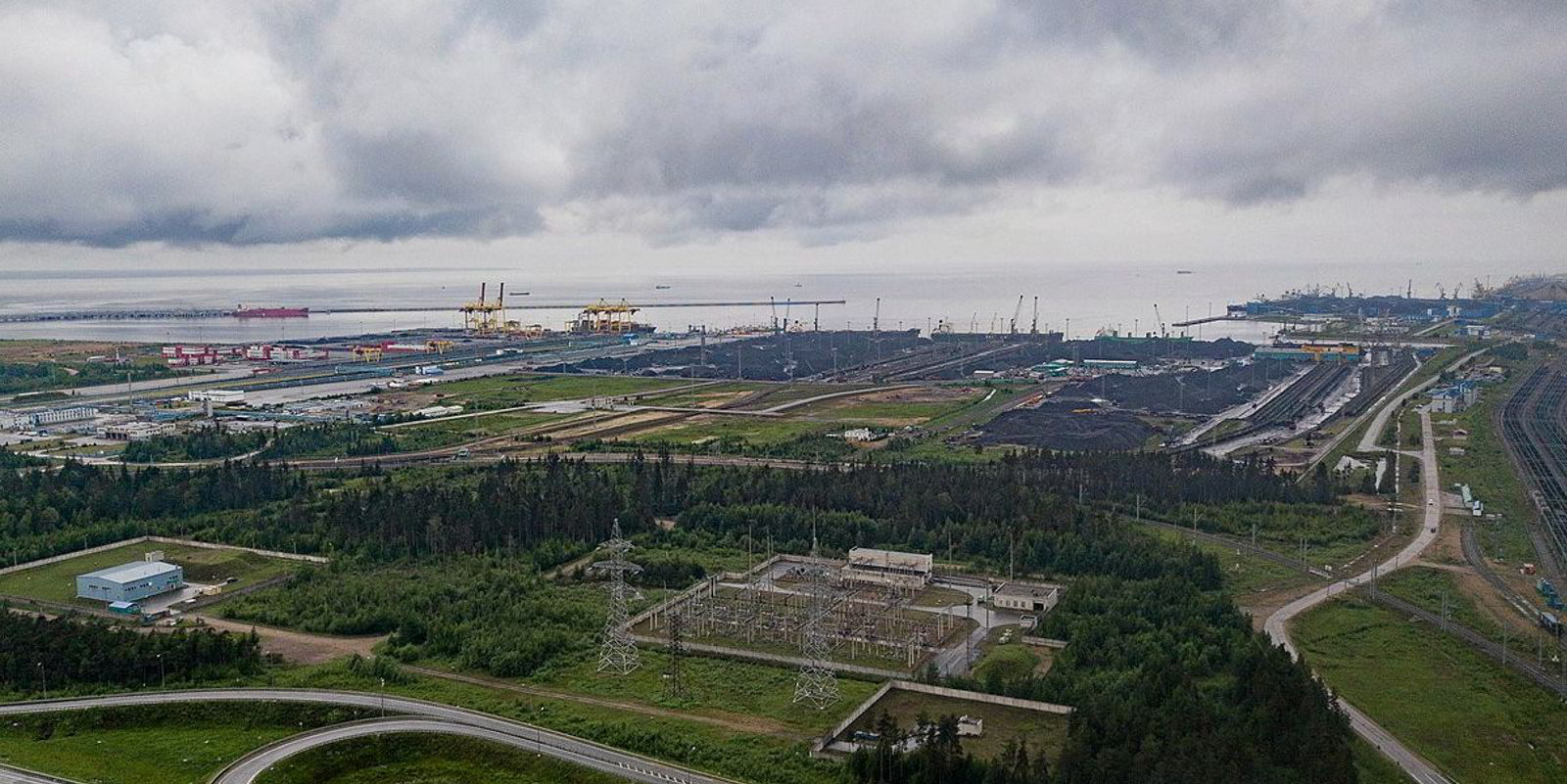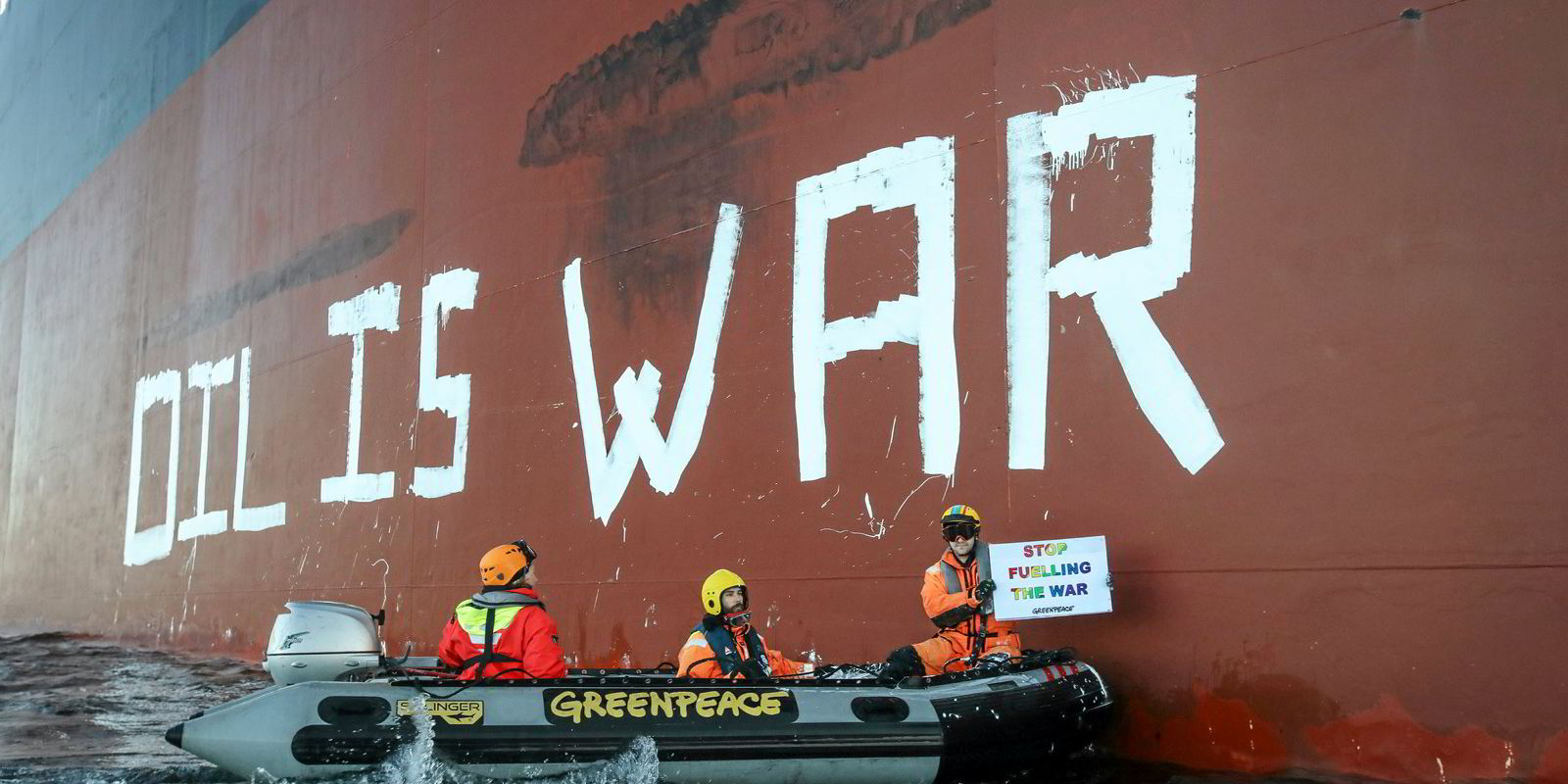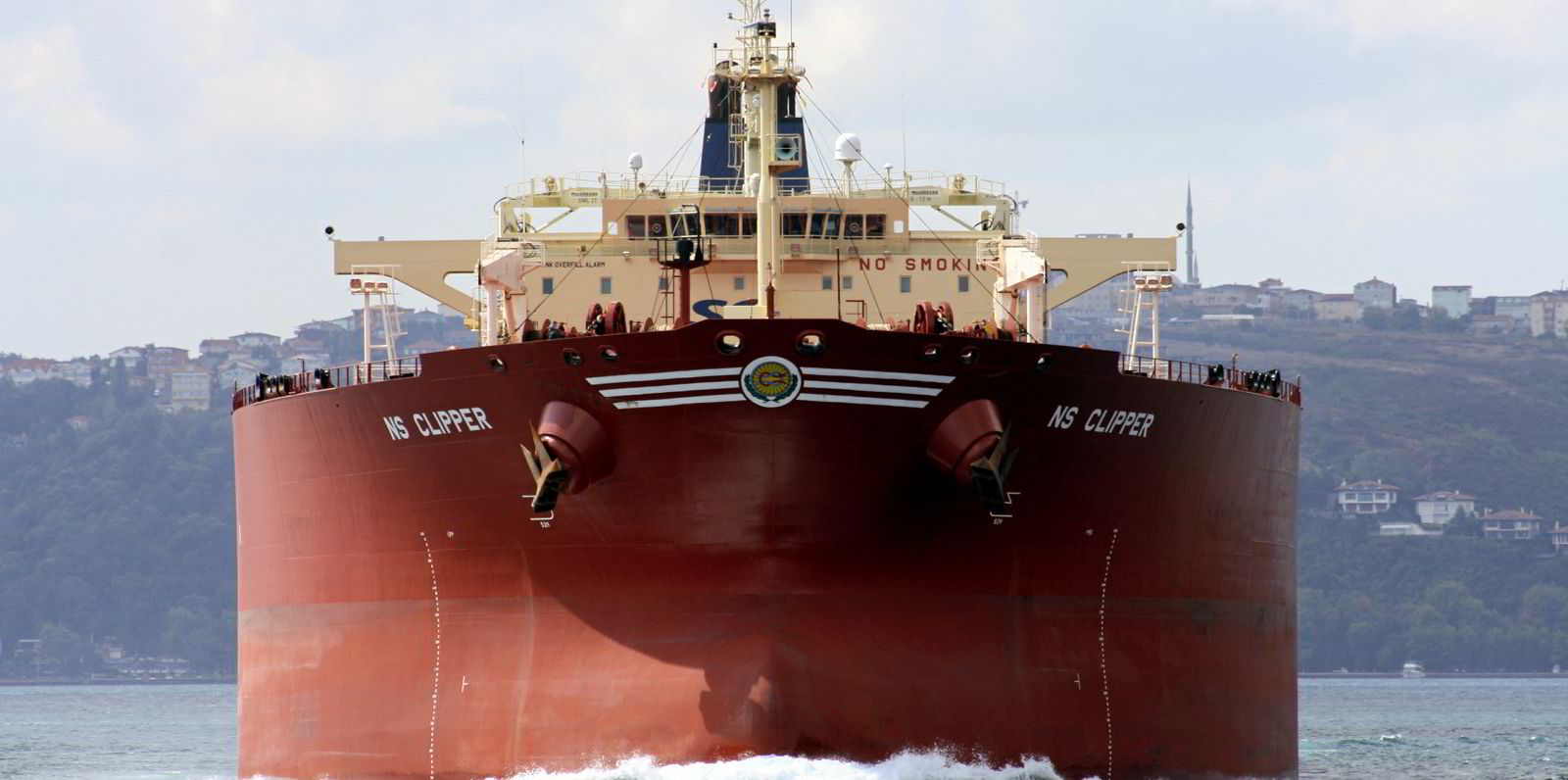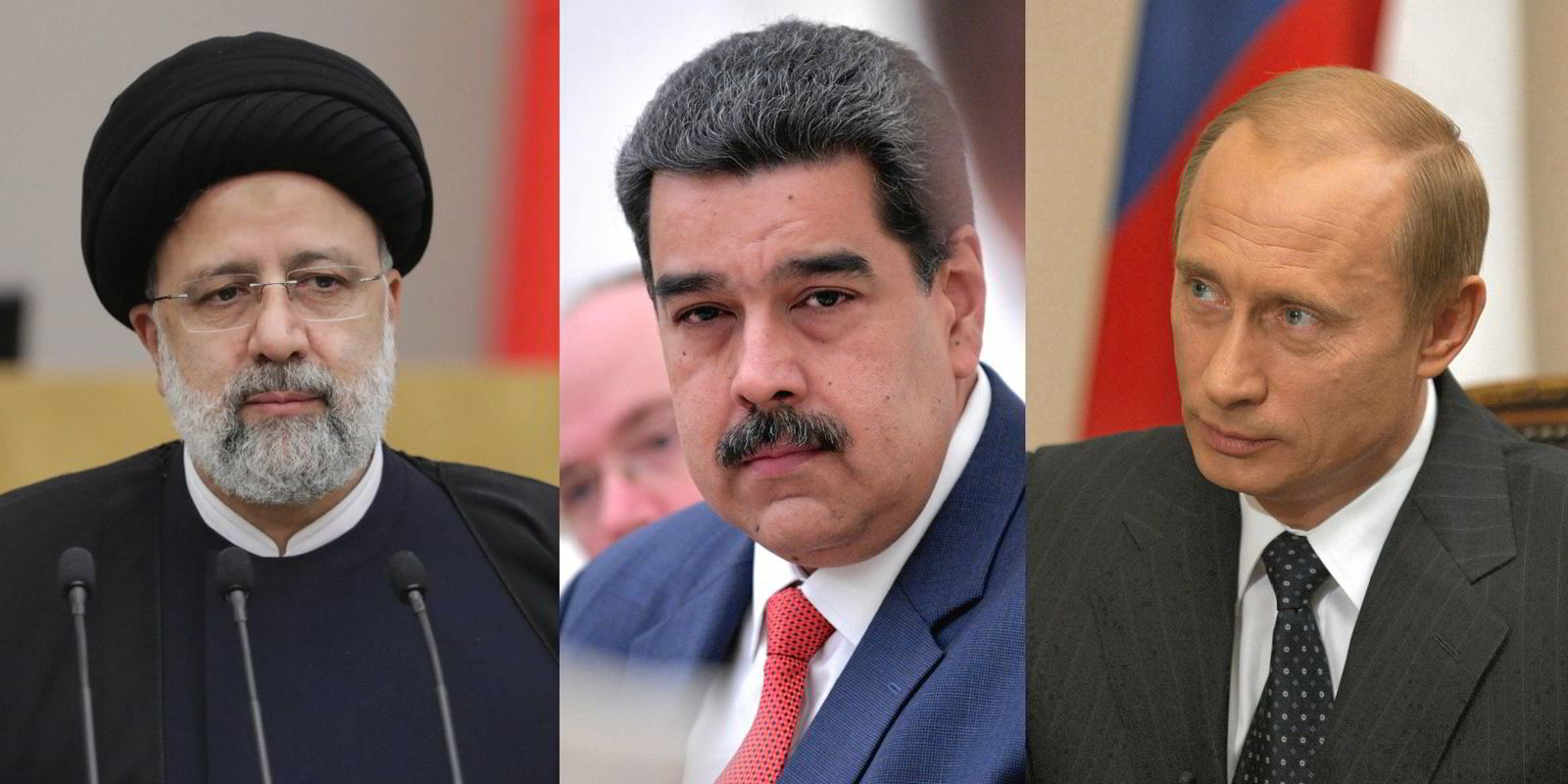Within hours of the start of Europe’s ban on Russian crude imports, a tanker docked at the east Russian port of Ust-Luga to load under a new trading regime shaped by geopolitics in the aftermath of the invasion of Ukraine.
The 109,600-dwt Buena Vista (built 2007), owned by Social Club Inc of the Marshall Islands, is managed by an Indian company that burst onto the tanker scene in 2022 and now has 10 ships under its control, according to shipping information provider Equasis.
The aframax left Ust-Luga on Wednesday with more than 740,000 barrels of crude and is due to arrive at the Jamnagar terminal in northwest India early next month, according to cargo and tracking data from analyst Kpler. The data showed the tanker passing the southern tip of Sweden on Friday.
The trade highlights the prominence of new entrants to the tanker trade this year and the complexities involved in monitoring and enforcing European involvement in a controversial sanctions scheme and accompanying price cap brought in by G7 countries.
Any Russian crude loaded from 5 December is subject to a seaborne import ban imposed by the European Union — an attempt to penalise Moscow for its invasion of Ukraine in February. An EU ban on oil product imports will be introduced on 5 February. G7 countries have also banned Russian seaborne crude imports.
EU service providers can supply insurance and financial services for crude oil trades with third countries — such as India — only if the sale price is at or below a price cap of $60. The protection and indemnity insurance for the Buena Vista is provided by the UK’s Standard Club,the provider’s website says.
UK government guidance says insurers have to carry out “appropriate due diligence” to ensure the shipment is at or below the cap price. That would include the scrutiny of signed undertakings provided as part of shipping documents, according to the guidance. The Standard Club declined to comment.
In a new notice to its own members, Tony Paulson, the corporate director of West of England P&I Club, said a shipowner or charterer that intends to transport Russian crude would have to provide an undertaking about the sale price.
“Club cover for the carriage of Russian crude oil loaded after 5 December 2022 … is dependent on members complying in full with the requirements of the price cap schemes, including the provision of appropriate attestations,” he wrote.
“Clubs will be required to withdraw cover where there are reasonable grounds to suspect that the cargo being carried has been purchased at a price greater than the price cap.”
Moscow says it will not ship oil to any country that has signed up to the cap scheme. India, which has not signed up, is benefiting from the falling price of Russian oil linked to the regime.
The shifts in the oil trade since last 5 December have pushed the market rate for Urals crude below $60 per barrel to just below $50 on Monday, according to oilprice.com. It was trading above $70 in mid-November.
Researchers from Vortexa said tankers that have loaded crude at Russian ports since 1 December are sailing mainly to India. TankerTrackers.com said they are likely to be carrying barrels that were heavily discounted at the last minute, which would have put the cargoes below the price cap.
The West’s struggle to agree an oil price cap underlines the difficulties … in applying sanctions to countries such as Russia which play a role in the global supply chain
— Timothy Ash
The Buena Vista is one of a group of tankers bought in the summer by single-ship companies in the Marshall Islands and operated by Gatik Ship Management, an Indian operator based in Mumbai.
The Buena Vista has been under the ownership of Social Club Inc since September after the aframax, formerly known as Maersk Penguin, was sold by Maersk Product Tankers, according to data from Equasis.
The sale price was not revealed. The ship left the Maersk Tankers pool after the sale, the Copenhagen-based operator confirmed.
Following its ownership change, the tanker loaded oil at Ust-Luga, one of four key ports that was responsible for more than 70% of Russia’s seaborne crude oil liftings in 2020. It sailed to an anchorage off Greece, tracking data shows.
The area is popular for ship-to-ship transfers of Russian oil to larger vessels for onward shipment to Asia.
Gatik Ship Management, which was founded in March, now has seven crude tankers and three oil product carriers under management, Equasis says. They range from 14 to 19 years old. Four of them were added in November.

It is unclear whether Gatik has an ownership stake in them or if it is purely the commercial manager. The International Maritime Organization database lists Gatik as owning one ship and managing seven.
Gatik does not have its own website but shares an office with Buena Vista Shipping, a company that is seeking to become an “undisputed leader in energy transportation and ship management”, according to its website.
A person who picked up the phone to a Buena Vista number confirmed they were from Gatik but declined to comment further. They provided a Gatik email for further enquiries about the Buena Vista’s cargo, but a request for information from TradeWinds went unanswered.
There is nothing to suggest that the owner or operators of the Buena Vista have done anything contrary to sanctions legislation.
Aframaxes are key to moving Russian crude, sparking a brisk secondhand market in the tankers in an apparent attempt to cover a tonnage shortage. The shortage threatens a potential cut in Russian oil production following the ban and cap, according to analysts.
VesselsValue data suggests that 95 aframaxes have changed hands since the invasion, with premium rates on Russian trades seen as a key attraction for new owners.
Sales have been brisk in older tankers that might have otherwise been scrapped. Prices of aframaxes aged more than 20 years have jumped 86% to $22m since January, VesselsValue said.
Analysts said it is too early to determine the impact on Russian crude volumes but President Vladimir Putin said on Friday that Russia could cut output.
Timothy Ash, an associate fellow at the Russia & Eurasia Programme of London think-tank Chatham House, suggested that the need to retain unity among countries behind the price cap has led to it being set at a level that will limit its impact.
“The West’s struggle to agree an oil price cap underlines the difficulties more generally in applying sanctions to countries such as Russia which play a role in the global supply chain,” he wrote.
“The objective of sanctions is always to damage the target more than the countries applying the sanctions and there is also a political imperative to maintain sanctions unity.
“The latter has tended to take priority, resulting in sanctions of the lowest common denominator, moderating both the severity and effectiveness of sanctions as they have been applied to Russia.”





